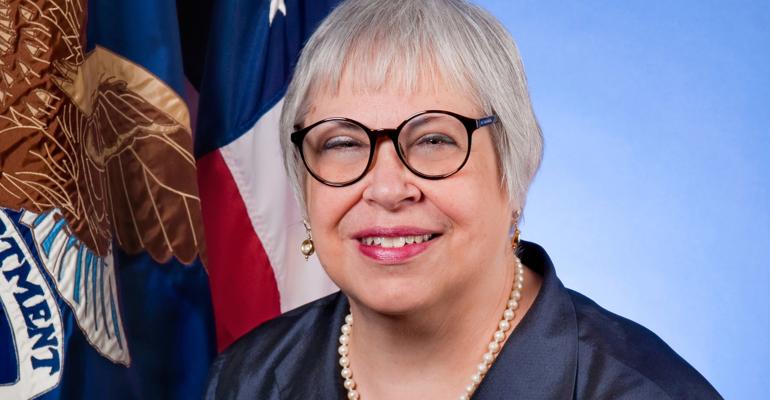Phyllis Borzi, the former assistant secretary of labor for the Employee Benefits Security Administration under President Barack Obama, oversaw the creation and implementation of the Department of Labor’s fiduciary rule, which was vacated last year. Speaking on a call with journalists on Wednesday afternoon, Borzi said she didn’t think it would be worth it to lobby Congress to reactivate the rule.
“Lobbying Congress to adopt a fiduciary rule with at least a sweep of the department’s rule, I think, would be extremely difficult,” she said.
One reason why, she said, is that there isn’t one government agency or congressional committee of jurisdiction that could deal with the problem. The Securities and Exchange Commission, for instance, has jurisdiction over securities, while the DOL regulates retirement plans, which can invest in a number of investments, not just securities.
“On Capitol Hill, the problem with legislation is, it’s even more diffused in terms of authority among the House and the Senate committees,” she added. “So I don’t think legislation would be the answer, because it would actually continue the problem of confusion in the marketplace as to advice for taxable versus tax-exempt.”
Borzoi was speaking on a media call aimed at launching a new initiative to better educate consumers about the differences between commission-based brokers and fee-only, fiduciary advisors. Industry groups, including the Alliance of Comprehensive Planners, the Garrett Planning Network, the Committee for the Fiduciary Standard, the Institute for the Fiduciary Standard and the National Association of Personal Financial Advisors (NAPFA), have introduced a new online resource center for the general public, called Advisor On My Side.
The website includes educational materials and tools to help consumers make sure they’re working with a fiduciary. The groups plan on building awareness through social media, with the hashtag #AdvisorOnMySide.
“Consumers can’t just rely on the federal government to protect their interests, and they don’t really need to do so. They can help themselves,” Borzi said.
In particular, the SEC’s Regulation Best Interest proposal doesn’t go far enough, she argued.
“Its proposals allow brokers to continue their conflicted compensation arrangements, while claiming that they are acting in their clients’ best interests,” she said.
The regulator should take the language they have written in press releases and descriptions of the proposal and actually put it in the regulation, she said.
“It never describes practices that might not be in somebody’s best interest,” she said. “It doesn’t require that every conflict be completely disclosed in an understandable fashion. I’m hopeful but skeptical that the SEC will make those kinds of fundamental changes.”
She had mixed feelings about the states’ efforts to create fiduciary standards. She believes a uniform federal rule would be best, but she understands the states’ motivation to move forward on their own.
“I do understand the imperative that some states feel to try to protect their residents because they want to make sure that every dollar that somebody’s saved for retirement actually gets used for that person’s retirement and is not used to pad the pockets of their financial advisors in a way that is not reasonable,” she said. “The difficulty is that you do wind up—if states move forward on an individual state-by-state basis—with nonuniform regulation.”





